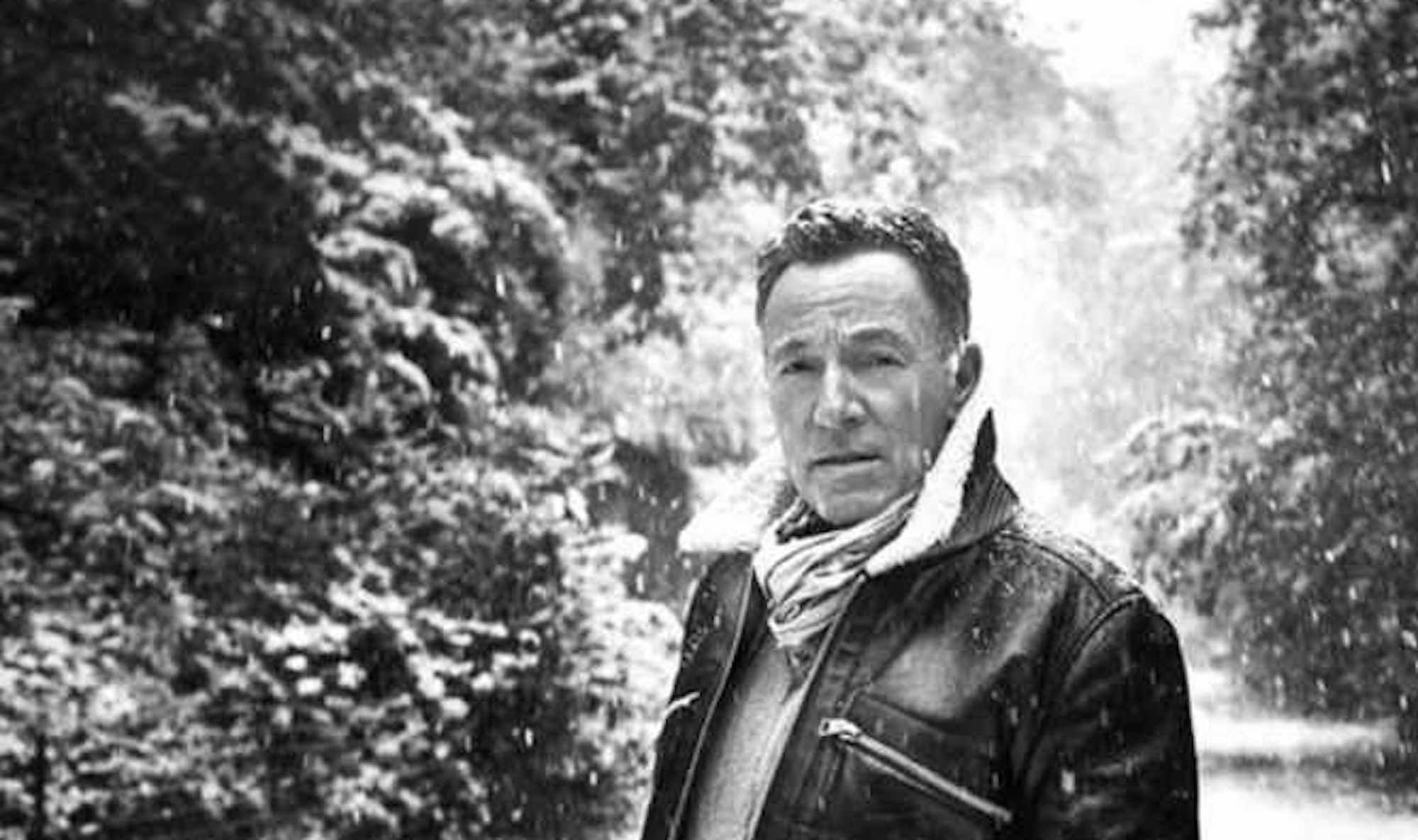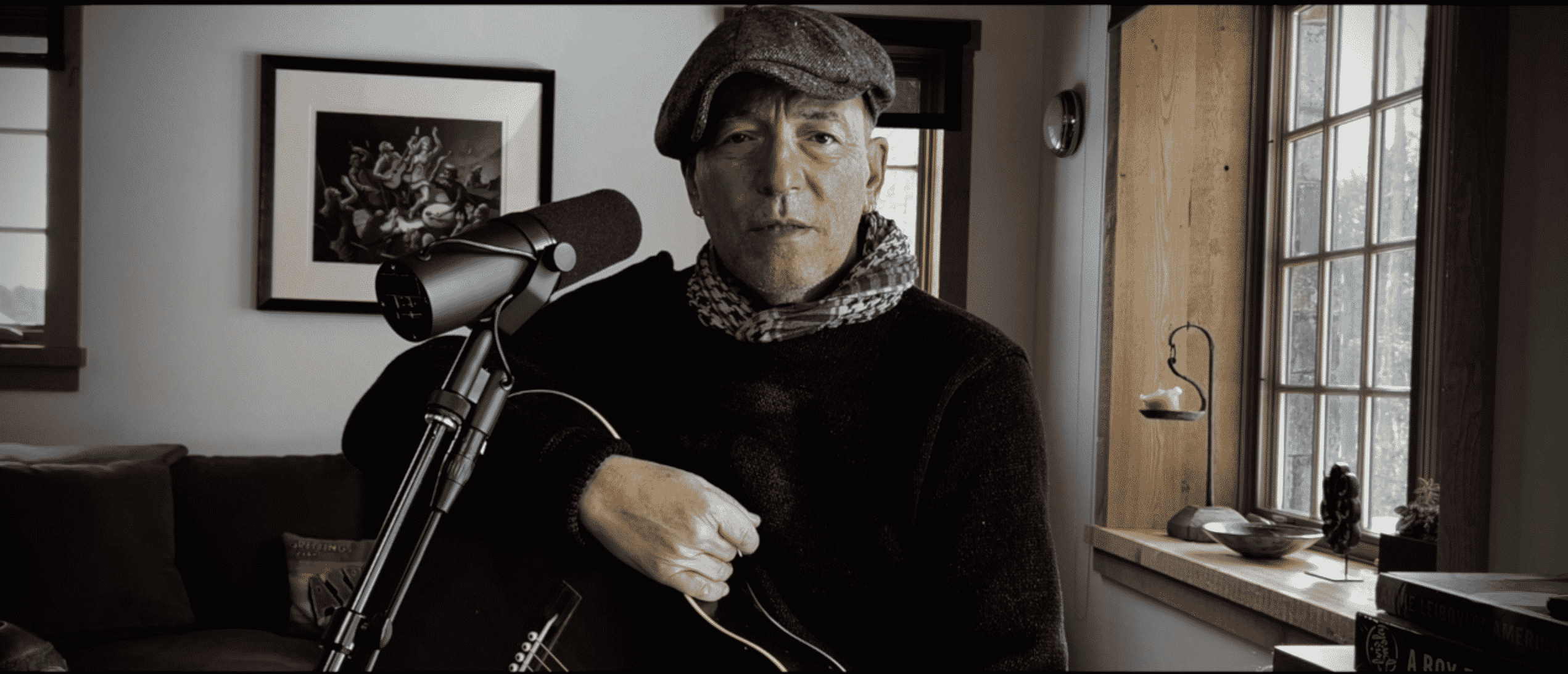
Videos by American Songwriter
A few months ago, Bruce Springsteen divided critics with the release of his 16th album, Working On a Dream. Points of contention included choice of producer (Brendan O’Brien, Bruce’s new right-hand man), cover art (was this a real attempt at making a statement, or a half-hearted Photoshop job?) and the inclusion of two controversial songs: “Outlaw Pete” and “Queen of the Supermarket.” The latter even prompted one Bruce-respecting website to ask: is this Bruce Springsteen’s worst song ever?
Well, that’s a question only you can answer (my personal choice has always been “Ramrod,” although, in later years, it’s grown on me.)
For my money, Working On a Dream is a superior album to 2007’s Magic. It feels more assured, more comfortable in its own skin. Or maybe that one just broke this one in.
This record is like a big valentine to Patti Scialfa, Springsteen’s wife and E Street band mate — it deals in a kind of domestic happiness that Tunnel of Love Bruce could not grasp, and what Lucky Town Bruce was just getting a hold on –t hat “a little of that human touch” goes a long, long way.
The song “Working on A Dream” is sloganistic, but effective – – a true working song, you can imagine doing whatever it is you do with this in the background, be it swinging a hammer, or grading math tests. It promises that “our love will chase the trouble away.” Pete Seeger would approve of its melody and message. It’s also one of a number of songs here that musically feel like they’d be at home on both Human Touch and The River.
“Kingdom of Days,” “What Love Can Do” and “This Life” are peons to commitment and sticking together. “This Life” examines love in the afterlife, and the here and now: “This life and then the next/With you I have been blessed/What more can you expect?” The ultra-produced climax has a Beach Boys, kitchen-sink quality, and features the all-important sax solo. The chorus intimates that Bruce is pretty sure he’s getting into heaven.
He dirties things up on the next track, “Good Eye,” where preacher Bruce “stands by the river where the cold black water runs.” It’s his first traditional blues, unless I’m missing something, with distorted bullet mic vocals, gritty harp, and a whiff of Tom Waits in subject matter and execution.
“Life Itself” is built on a “Rosalita” groove, but draped in darkness. “I can’t make it without you,” he pleads, as the song pools drama around him. It’s Rosalita and her suitor all grown up, and reminiscent of Paul Simon’s haunting meditation on marriage, “Darling Lorraine,” in subject and sound. Life itself is the muse here, and it’s also the silent enemy — you can’t run from it. You’ve got to face it. Even if you live in the promised land, out on Cadillac Ranch, in that mansion on the hill.
“The Last Carnival” starts with a bit of organ, then a sigh, before Bruce sings for his late friend, E Street organist Danny Federici. The lyrics directly reference “Wild Billy’s Circus Story,” 36 years later.
And then there’s “Outlaw Pete.” Bruce draws a line in the sand with this one, a song about a bank robber who lands in jail while he’s still in diapers. This spaghetti western takes eight minutes to cook, employing strings, harp, and gunslinger guitar in an ever-shifting arrangement, but it’s more “57 Channels” than “Jungleland.” It’s Springsteen having a little bit of fun, yet its driving minor chords pull you along. If you can accept Bruce as the Ghost of Tom Joad, or some migrant worker, then why not as Outlaw Pete?
In “Queen of the Supermarket,” which some have decried as being a sort of Costco of bad ideas, Bruce pops a boner for the girl in the produce department. Also, Bruce is cursing again, which is kind of like Superman getting high. The heavy-handed strings make it schmaltzy, but they also add to the song’s syrupy romanticism. It’s not for everybody. Fittingly, it’s one of the few Bruce songs you could imagine hearing in a supermarket.
With Working On a Dream, it sometimes seems like Bruce could write these songs in his sleep. There will always be stock imagery in Springsteen’s work, yet he continues to push himself, while expounding on his core values. It’s no Born to Run. It ain’t Born in the U.S.A. It’s Bruce Springsteen’s grown-up dream.












Leave a Reply
Only members can comment. Become a member. Already a member? Log in.